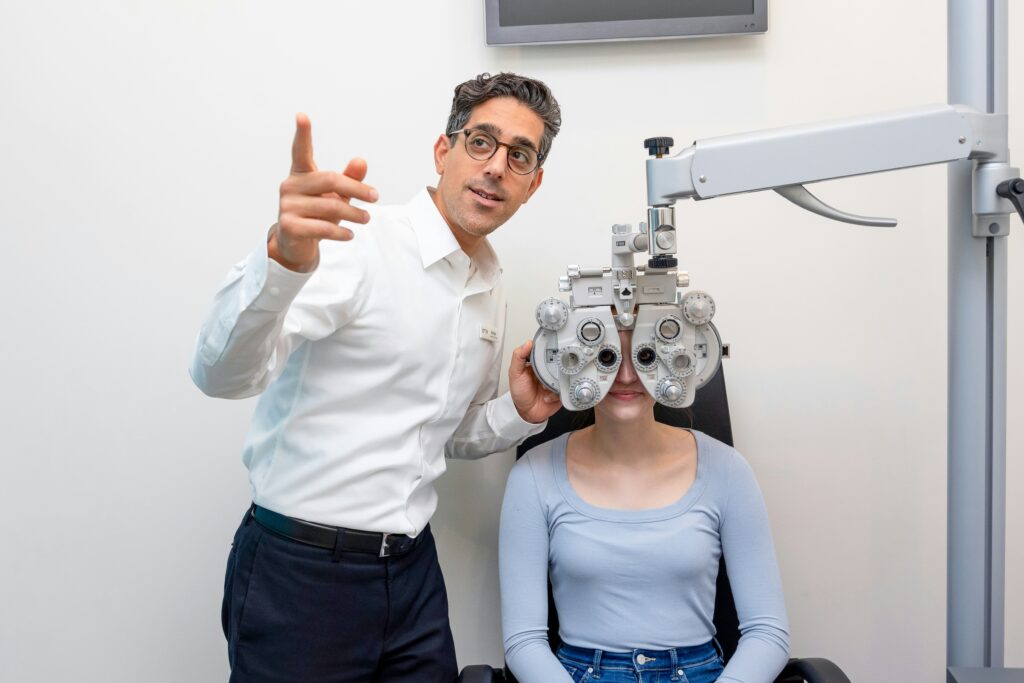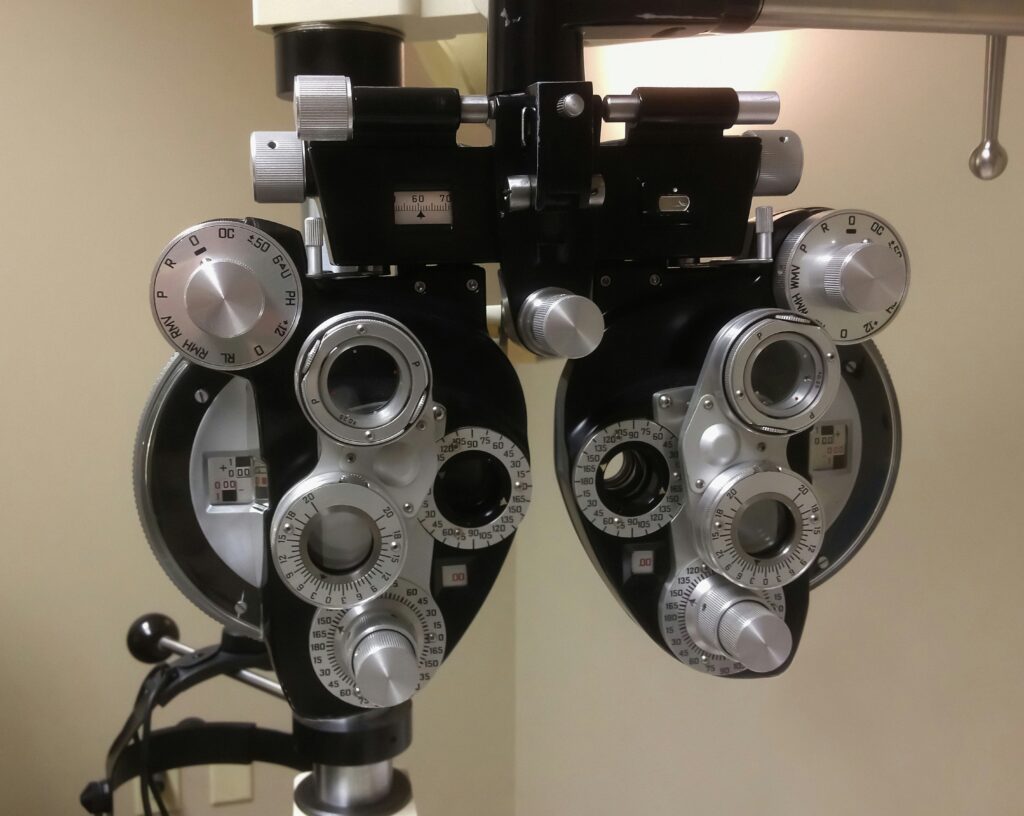
Eye Exams
Regular eye exams with a qualified eye care professional are a cornerstone in healthy vision. Not only do eye exams determine the need for vision correction (e.g., glasses and contacts), but they also play a key role in detecting and treating eye conditions early.
At our premier eye care practice, we do more than assess your quality of vision. Regular eye exams allow us to evaluate your eye health, correct existing vision problems and monitor conditions including amblyopia (eye alignment), presbyopia, glaucoma, macular degeneration and cataracts. Our team invites you to schedule a comprehensive eye exam for you and your family today.

